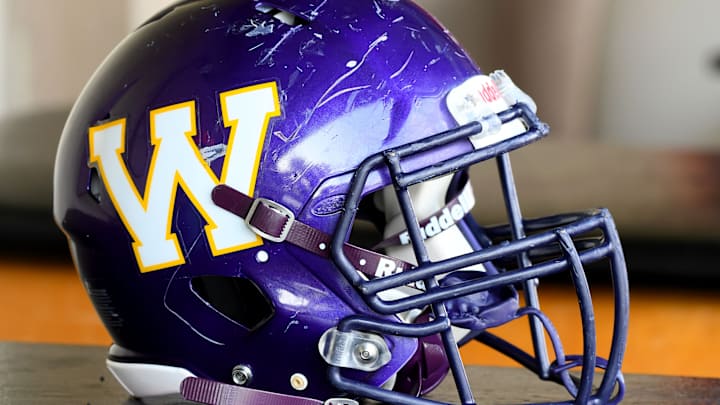A Conversation with Former Virginia Tech Wide Receiver Dyrell Roberts: Part I

Dyrell Roberts was a key member of Virginia Tech's 2008 recruiting class and became a valuable contributor to the program during a run of three ACC Championships from 2008 to 2012.
The receiver from Smithfield, Va. still holds Hokie records for career kickoff return yardage (1,577) and career kickoff return average (25.9). In 2010, Roberts finished fourth in the nation with 31.9 yards per kickoff return. He also caught 96 passes for 1,363 yards and six touchdowns during his career.
Roberts had speed to burn and created some classic moments, perhaps most famously hauling in a touchdown catch to seal a come from behind victory over Nebraska in 2009.
We discussed all of this and much more with the up-and-coming young coach over the phone this week.
This interview has been edited for clarity and length.
SI: You can't have any conversation with anyone at this point without asking how things are going? Obviously the pandemic has forced shutdowns everywhere. How have you personally been handling the challenges of all of this?
I've just been doing the same thing that everybody else in the world is going through. I came back home to Virginia so I've been home, home here with my family and everything for a couple of months now.
Where I grew up I'm in the country so I was already kind of secluded from everything and everybody. It really was everyday life for me it was just a little different. You know, going to the grocery store and all of that stuff you've got to wear the mask and you don't want to touch things and you're sanitizing more than you usually do and all of that.
It was tough, but you know you get through it. You do what you've got to do and just kind of hang on and hope for the best.
The main thing I worry about is my son. Everyone knows my son has some health issues with his tracheotomy and ventilator and all of that so he's my main concern [Dyrell Roberts Jr. "DJ" was born with Moebius Syndrome, a rare congenital neurological disorder that primarily affects the muscles that control facial expression and eye movement]. When he's with me he's away from literally everything so we've been able to keep him safe so that's really been my main concern.
SI: So how did you end up picking the Hokies and ending up at Virginia Tech?
For me being from the Hampton Roads area and watching all the talent go there you know, the Vick's, you see Tyrod Taylor going there and Kam Chancellor going there. Back in the day DeAngelo Hall and all of those guys making Virginia Tech what it was. Me coming up, coming from Virginia if you look back and kind of look at it Virginia Tech was it for my area.
There were a lot of things that felt like home. It always was that homey feeling. I didn't want to be in the [Hampton Roads] area but I didn't want to be too far either because I knew I wanted my family to see me play. At the time my Grandmother was battling ovarian cancer so I still wanted for her to be able to see me.
Virginia Tech just had that home feeling for me, it didn't feel like it was just a process or just something to say. It felt like everything was genuine. I knew what I was going into, the city felt right, the fanbase felt right, the game atmosphere was amazing. It was kind of like a no-brainer for me to be honest with you.
SI: Have you always envisioned yourself getting into coaching once you were done playing?
I did. I wanted my playing career to go farther than it did, my injuries kind of put a damper on some of that stuff.
I knew I wanted to get into coaching but I didn't know the level. I knew at some point in time I wanted to go back and I wanted to start high school because I wanted to see what the high school level was like.
Once I did, my first season back at my high school [Smithfield High School] as an assistant coach there the relationships I built with the guys not only just saying who I was from the hometown and all that good stuff, just the relationships period. Just with the kids and starting to care about them and really want what's best for them and I was like, 'Oh man, I really like this coaching thing.'
I knew I was going to have my hand in the game some way shape or form.
SI: How did Coach Beamer influence the type of coach you are today?
A lot. Coach Beamer was a father figure away from home. He led us in a great way without a doubt. Everything was always positive. I mean, he would get on you. If you weren't doing what he knew you could do...if you weren't on your P's and Q's and had your life going in the right direction he would definitely call you in and sit you down and say, 'Hey man I know you. I sat down in your home with your family. What you're doing right now, this isn't you."
My receivers coach, coach [Kevin] Sherman, my relationship with him is also amazing but to have a head coach who cared about every single one of his players enough that it didn't matter who you were whether you were playing, whether you were third-string, whether you were a walk-on it didn't matter.
If you weren't living right, if you weren't representing not only you and your family but the program the right way he would bring you in and wind you in and talk to you and have that conversation.
I feel like that's the type of coach I am. I feel like I'm a player's coach. I can relate both on and off the field because one I did it, so all of my guys they respect me on that but they respect me a lot more because they genuinely know I care and if anything was to happen they know they can call me at any time and I'm going to do everything in my power to help them or get them in the best situation possible.
Stay tuned for part two of this two-part series with Dyrell Roberts
